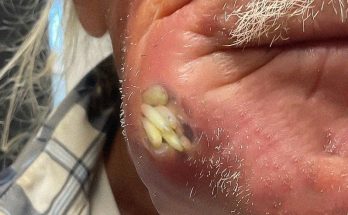When it comes to building strength, enhancing endurance, and feeling your best after a workout, protein plays a starring role.
While exercise challenges the body and breaks down muscle fibers, recovery is where real progress happens.
This healing phase is when the body rebuilds stronger, leaner, and more resilient muscles—and protein is the essential nutrient driving that process.
Understanding the science behind protein and muscle recovery can help you make smarter choices about your diet, training, and overall wellness routine. Every time you exercise, especially during strength training or high-intensity workouts, your muscles experience tiny tears in their fibers. This might sound alarming, but it is a natural and necessary part of growth. The body repairs these small injuries by fusing muscle fibers back together, forming new, stronger tissue. For this rebuilding process to happen effectively, the body needs amino acids, which come directly from the protein you consume. Amino acids are often called the building blocks of life, and in this case, they are literally the materials your body uses to repair and strengthen muscles after exertion. Protein also supports muscle recovery through a process called muscle protein synthesis. This is the biological mechanism where the body produces new proteins to replace damaged ones. During exercise, muscle protein breakdown increases, and after the workout, your goal is to shift the balance so that synthesis exceeds breakdown. Consuming protein within a few hours after activity helps activate this process. The amino acids from food signal the body to begin repair and growth, leading to greater muscle strength and performance over time. One of the most important amino acids in this process is leucine. It is a branched-chain amino acid, or BCAA, known for its ability to stimulate muscle protein synthesis. Foods rich in leucine, such as eggs, chicken, fish, dairy, and soy, are particularly effective in supporting recovery. When you consume enough of these sources, your body can repair faster and reduce post-workout soreness. This is one reason why athletes and active individuals emphasize getting enough protein after intense activity—it directly influences how quickly and effectively the body bounces back. Protein’s role goes beyond muscle repair. It also helps reduce inflammation and oxidative stress caused by exercise. Physical activity, especially when intense or prolonged, generates free radicals in the body. These unstable molecules can damage cells and slow recovery if not balanced by antioxidants and proper nutrition. Protein contributes by supporting the production of enzymes and other compounds that protect cells from damage. As a result, consistent protein intake can make recovery smoother and keep you feeling energized rather than fatigued. Another interesting aspect of protein in recovery is its effect on hormones. Exercise triggers the release of stress hormones such as cortisol, which can break down muscle tissue when present in high amounts for too long. Protein helps moderate this effect by supplying amino acids that the body can use for repair instead of turning to muscle tissue as an energy source. In addition, eating protein after a workout helps increase levels of insulin, a hormone that aids in nutrient transport. Insulin carries amino acids into muscle cells, jumpstarting the repair and growth process. The timing of protein intake has been widely studied, and while exact recommendations vary, consuming protein soon after exercise remains a smart strategy. Within thirty minutes to two hours post-workout, the muscles are most receptive to nutrient absorption. This period is sometimes referred to as the “anabolic window,” when the body efficiently uses amino acids to rebuild muscle tissue. A balanced post-workout meal or snack containing both protein and carbohydrates helps replenish glycogen stores and provide the raw materials for recovery. For instance, a smoothie with milk, yogurt, and fruit offers a convenient and nourishing way to refuel. Quality also matters when it comes to protein and muscle recovery. Complete proteins, which provide all nine essential amino acids, are the most effective in supporting muscle repair. Animal-based options such as eggs, fish, poultry, and dairy naturally contain complete proteins. However, plant-based eaters can still achieve the same benefits by combining different protein sources, such as beans with rice, lentils with quinoa, or soy products like tofu and tempeh. These combinations ensure that the body receives a full spectrum of amino acids for optimal recovery. Protein powders have become a popular way to meet post-workout needs, especially for those with busy schedules. Whey protein, in particular, is quickly absorbed and rich in leucine, making it one of the most studied and effective supplements for muscle repair. However, whole foods remain an excellent source of nutrients that work together to support recovery. The key is consistency and balance—whether your protein comes from food or supplements, your body benefits most when intake is steady throughout the day. Muscle recovery is not only about physical rebuilding but also about preventing fatigue and improving future performance. Protein supports the replenishment of enzymes and immune cells that may be depleted during intense exercise. When the body has enough of these resources, it can adapt to training more effectively, leading to better endurance, strength, and resilience over time. Recovery, in this sense, is the foundation for progress. Without it, even the most dedicated exercise routine can lead to burnout or injury. Sleep also plays an important role in this process. During rest, growth hormone levels rise, aiding tissue repair and regeneration. Consuming a source of slow-digesting protein before sleep, such as cottage cheese or a protein-rich yogurt, can provide the body with a steady supply of amino acids throughout the night. This supports overnight recovery and ensures the muscles continue rebuilding while you rest. Hydration further enhances the benefits of protein. Water is essential for transporting nutrients and removing waste products generated during muscle breakdown. Without enough fluid, the body cannot efficiently use the protein consumed. Pairing protein-rich meals with plenty of water ensures that the recovery process runs smoothly and helps prevent stiffness and cramps after exercise. It is also important to recognize that the right amount of protein varies for everyone. Factors such as body weight, activity level, and fitness goals influence how much is needed. In general, active individuals require more protein than those with sedentary lifestyles to support muscle repair and growth. However, balance remains essential—too much protein without adequate carbohydrates and fats can limit overall energy and slow recovery. A well-rounded diet that includes all macronutrients is the most effective approach for lasting results. In the broader picture, protein is more than just a nutrient for athletes. It is a cornerstone of good health, contributing to everything from hormone regulation and immune defense to skin and hair maintenance. When paired with regular exercise, sufficient rest, and proper hydration, protein helps the body stay strong, recover quickly, and perform at its best. The science behind protein and muscle recovery shows that progress does not happen during the workout itself but in the hours and days that follow. By understanding how protein supports the rebuilding of muscle tissue, you can make choices that align with your goals—whether that means gaining strength, improving endurance, or simply feeling more capable in daily life. Every time you refuel with nourishing, protein-rich foods, you are giving your body the tools it needs to recover, adapt, and grow. With patience, consistency, and mindful nutrition, the combination of protein and proper recovery becomes one of the most powerful partnerships in achieving lasting health and strength.

